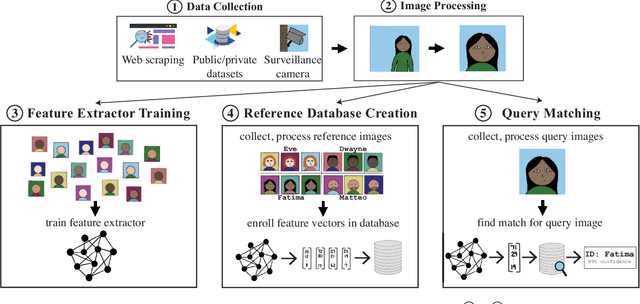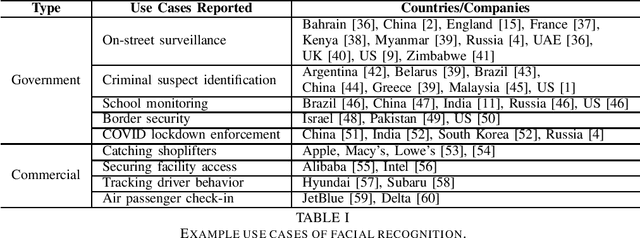SoK: Anti-Facial Recognition Technology
Paper and Code
Dec 08, 2021



The rapid adoption of facial recognition (FR) technology by both government and commercial entities in recent years has raised concerns about civil liberties and privacy. In response, a broad suite of so-called "anti-facial recognition" (AFR) tools has been developed to help users avoid unwanted facial recognition. The set of AFR tools proposed in the last few years is wide-ranging and rapidly evolving, necessitating a step back to consider the broader design space of AFR systems and long-term challenges. This paper aims to fill that gap and provides the first comprehensive analysis of the AFR research landscape. Using the operational stages of FR systems as a starting point, we create a systematic framework for analyzing the benefits and tradeoffs of different AFR approaches. We then consider both technical and social challenges facing AFR tools and propose directions for future research in this field.
 Add to Chrome
Add to Chrome Add to Firefox
Add to Firefox Add to Edge
Add to Edge